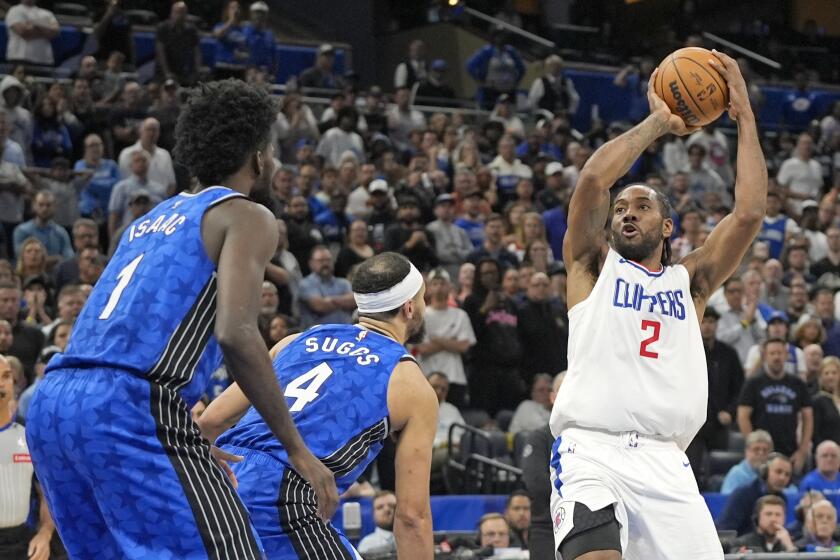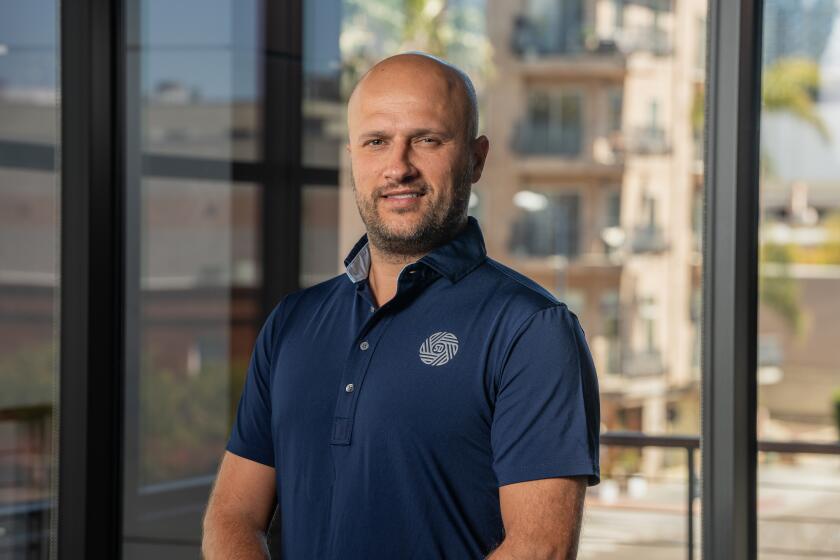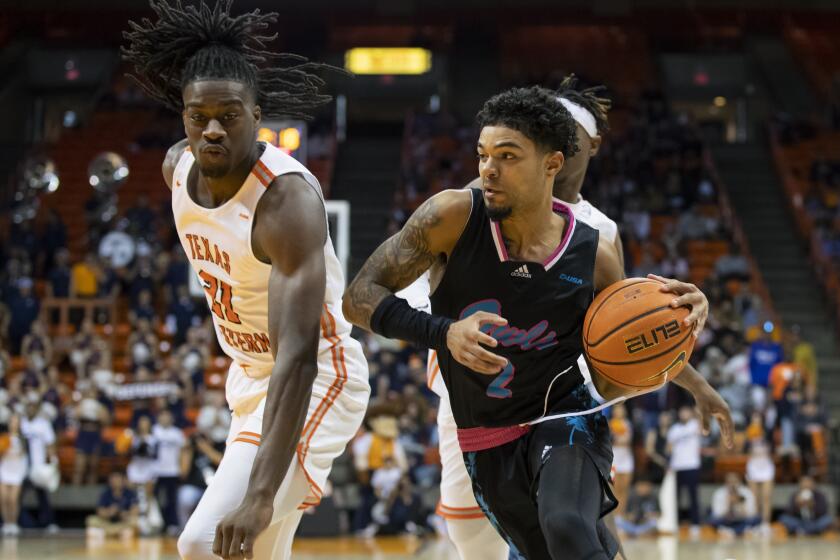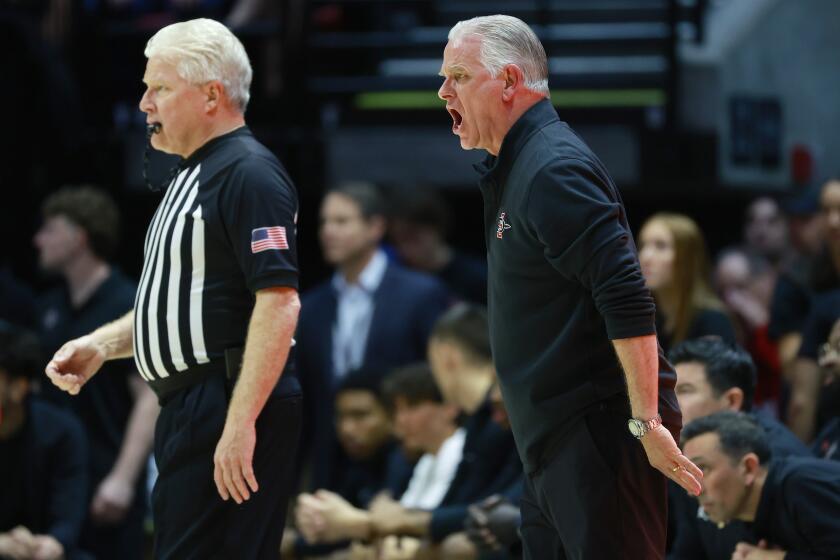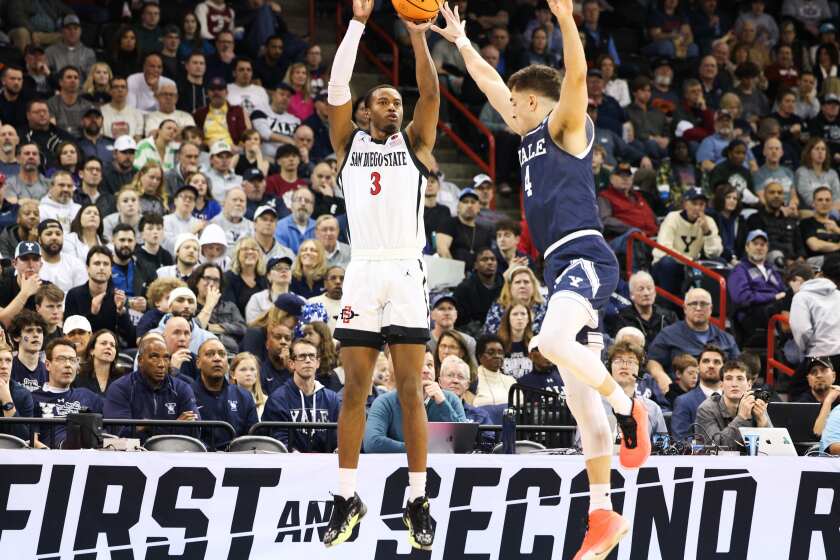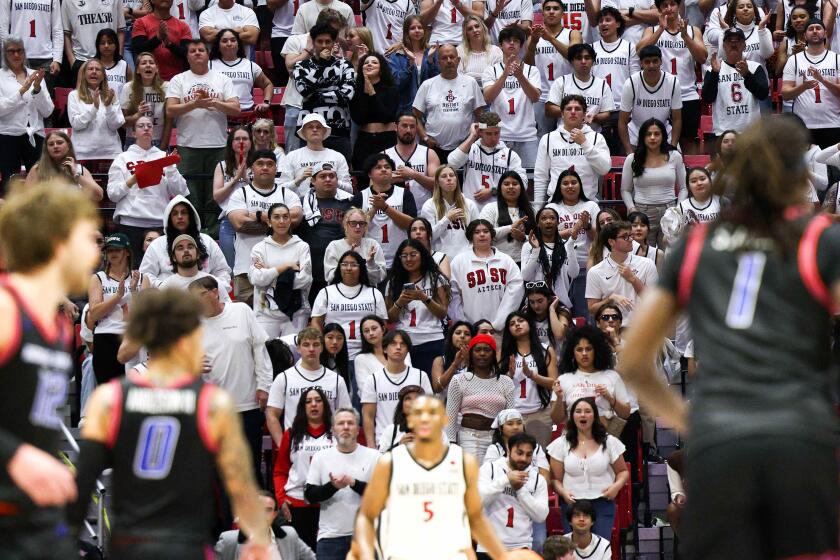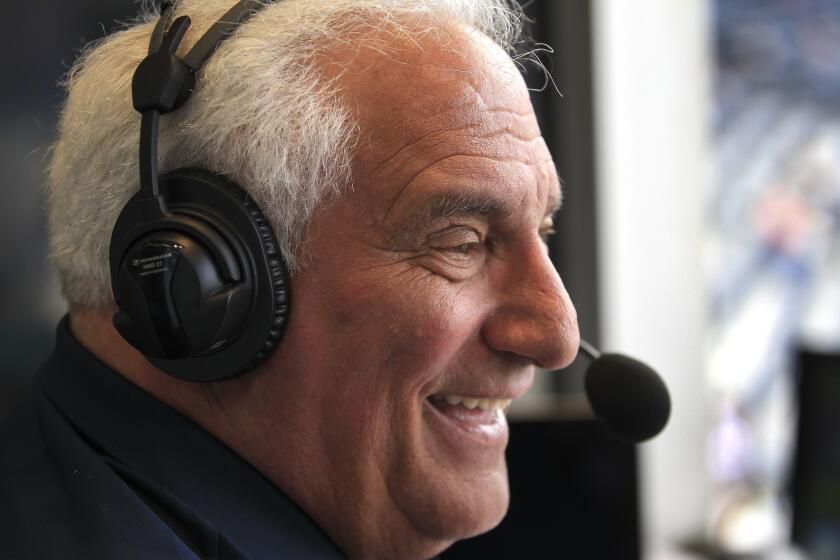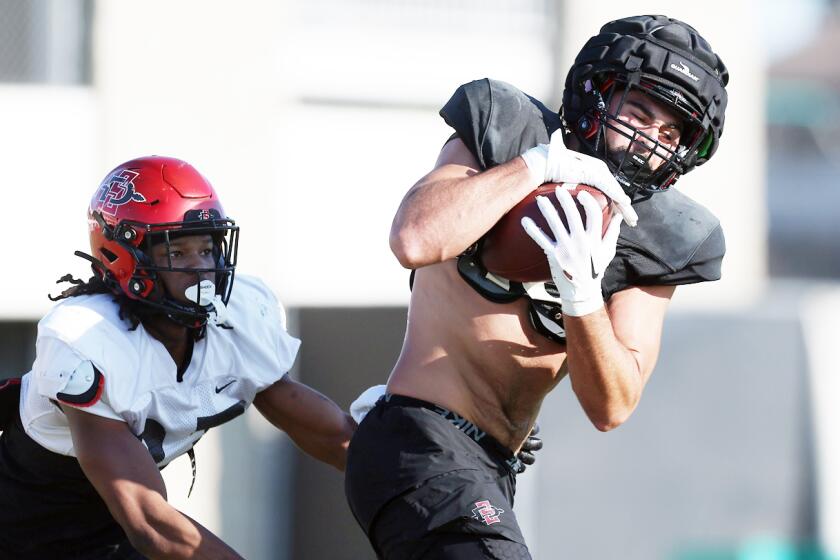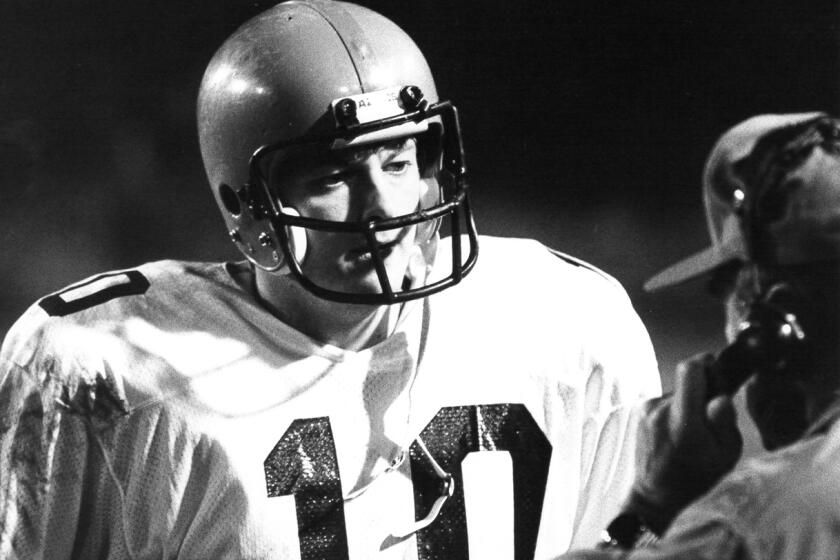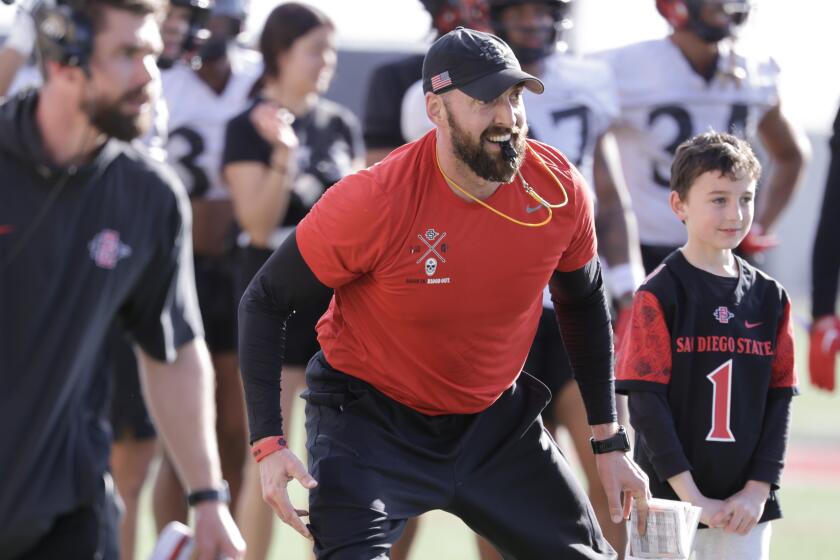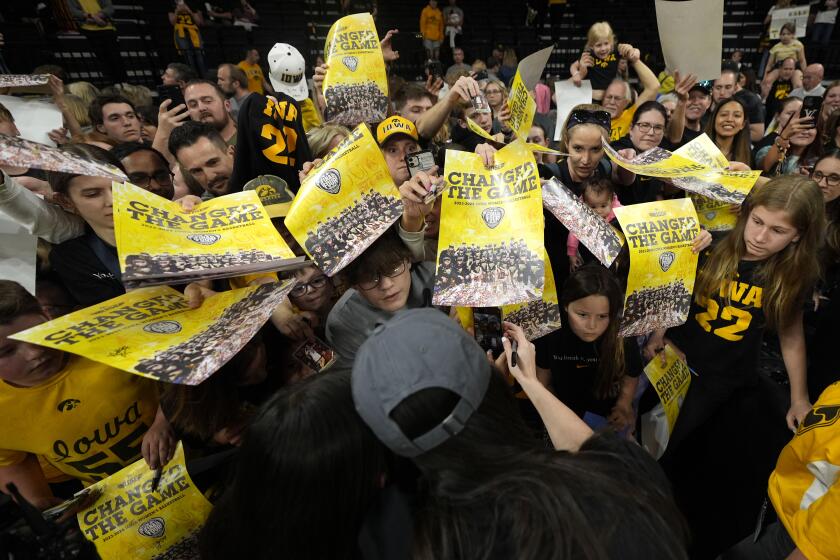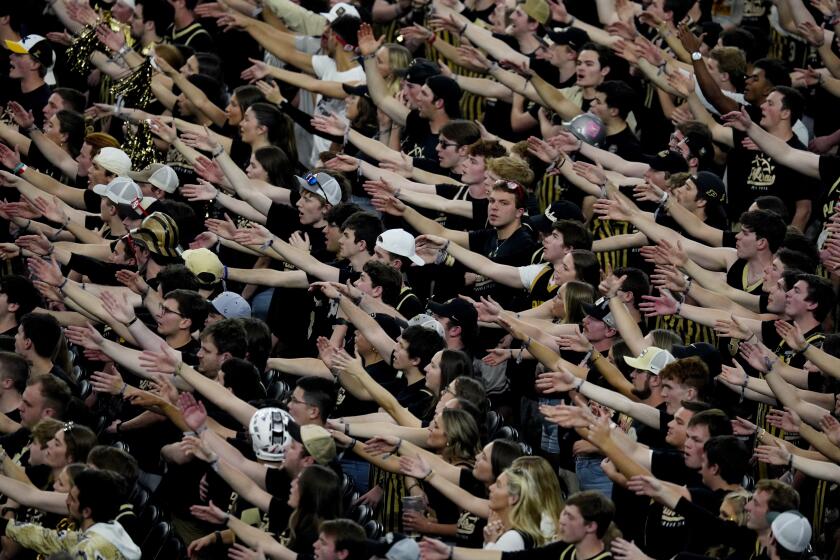Attitude and altitude: San Diego State basketball’s crazy week of planes, buses, games and classes
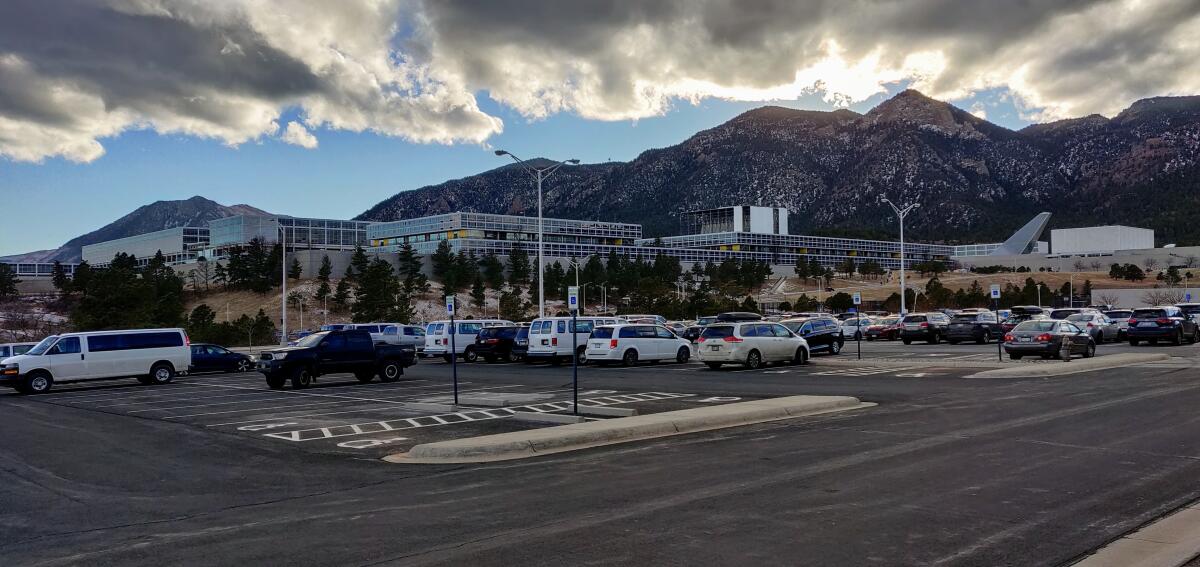
The Aztecs are at Air Force just three days after playing 125 miles away at Colorado State, but they flew home between games to get out of the altitude and attend classes
Micah Parrish was finally nodding off to sleep when the bus pulled into campus Thursday morning. It was 3 a.m.
The San Diego State basketball team had played at Colorado State night before in a game that didn’t tip off until 8:47 p.m. MST and then went into overtime. They didn’t get to the Northern Colorado Regional Airport until after midnight for their charter flight and, once the plane was de-iced given the snowy, frigid conditions, didn’t take off until 1:09 a.m. They couldn’t fly into Lindbergh Field because of the late hour so they landed at Brown Field on the United States-Mexico border, unloaded the bags and bused to campus.
Awake again, Parrish didn’t fall asleep at his apartment until after 4 a.m. His alarm beeped at 8:20.
Spring semester began this week at SDSU, and he had a 9 a.m. public speaking class followed by a 10:30 writing class. Skip them, and you risk being dropped if they’re full. Both classes have a waiting list.
“It’s something you have to deal with,” the junior wing said of balancing academics and athletics. “You’re not just a regular student, like many people think. It’s tougher. But you have to get the job done. … I don’t think people really understand. Somebody in my class saw me and asked, ‘Wait, what time did you get back last night?’”
The demands of a Division I student-athlete are already high, particularly this week for the men’s basketball team. It played Wednesday at Colorado State, then Saturday night 125 miles south at Air Force.
When the final Mountain West schedule was announced in October, with games moved forward or back a day from their original dates by the conference’s TV partners, coach Brian Dutcher ran his finger down the list of games. He stopped at Jan. 18 and Jan. 21. Colorado State and Air Force. Away and away.
They met as a staff and weighed the value of just staying in the mountains from Tuesday until Sunday against flying home between games. Logistically, it made more sense to do the former. Competitively, the latter.
Colorado State’s Moby Arena sits at 5,023 feet. Air Force’s Clune Arena is at 7,081 feet, the second highest basketball venue in Div. I.
The problem is that, according to physiologists, the body needs several week to fully acclimate to the lower oxygen levels at high altitude. The next best thing is arriving within 24 hours of competition. The third and fourth days often are the hardest for athletes from sea level.
Dutcher doesn’t need a physiologist to tell him this. He saw it first-hand in the first six years of the Mountain West, when teams used a travel-partner scheduling format where you had two-game road trips with a day between. That meant Colorado State on, say, a Saturday followed by Wyoming on Monday. Or BYU and Utah. Or Air Force and New Mexico.
“I’ve just been in the conference too long,” Dutcher said, “and seen too many second games at altitude to know it’s nothing to do with attitude — they want to play hard — and it’s not that they’re grabbing their knees and they can’t catch their breath. They’re a half-step slow, and a half-step slow in any sporting event is going to cost you a game.”
San Diego State’s record in the second game of back-to-backs at altitude is 2-13. The Aztecs had lost seven straight when the Mountain West switched, at the request of sea-level members, to a Wednesday-Saturday format in 2005-06.
The decision, then, was easy: Use one of their allotted charter legs to fly home immediately after the Colorado State game, practice Thursday and Friday in San Diego, then fly back commercial to Denver on Friday afternoon ahead of Saturday night’s game at Air Force.
Another benefit: Players could attend Thursday morning classes.
Senior guard Matt Bradley’s was at 9:30 a.m., a criminal justice course that examines gang culture in America.
“It was actually really interesting,” Bradley said. “And it was the first class of the semester, so it was kind of exciting to get up and go. And it was packed. People were showing up late, and they weren’t on the attendance list anymore. I got there on time.”
Unlike some Division I programs, SDSU athletes still predominantly take in-person classes instead of being fully online. Coaches send managers to perform seat checks, ensuring players show up.
Practice was at 1 p.m., preceded and followed by film sessions on Air Force’s unique offensive and defensive schemes. They were back at the JAM Center the following morning for a 9 a.m. practice, followed by a bus to the airport, followed by a flight to Denver, followed by a bus to Colorado Springs, followed by dinner and another film session.
“Yeah, being a student in college is hard enough,” Bradley said of the wild week. “You throw athlete on top of that, it’s a full-time job. People think being an athlete on campus comes with a lot of perks, which it does. But not academically. We have to work twice as hard to make sure we stay on top of things. It gets a bit challenging, but the reward is you get to play on a really good team and you’re on scholarship. It’s a win-win.
“I don’t know too much about altitude and how that works. But our coaches have done their studying and what it would mean to stay out there. If the elevation was going to get to us, we didn’t want to risk that. I’m not a big fan of flying, but I’m glad we came back.”
Another benefit: the scout team.
It consists mostly of walk-ons who don’t regularly travel with the team, some because they have jobs to help pay for school. Returning to San Diego gave the team two practices against them running Air Force’s Princeton-style offense.
“If we stay on the road, we’re doing it with coaches and managers out there and it’s a walk-through,” Dutcher said. “Here, we can go through their stuff as close to live as we can. That’s a big plus. Sometimes — and I don’t say this to be derogatory to anybody — our scout teams runs the opponent’s stuff better than they do.”
The idea was to keep the same routine as the Colorado State trip, a gutty 82-76 win. Same morning practice time the day before, same eggs and bacon meal afterward, same bus departure time for the airport, same Southwest flight, same meal and film schedule when they arrive at the hotel.
Even the weather in Denver was the same when they touched down Tuesday and Friday. A snowstorm greeted them.
The only difference is the return. Instead of chartering home after the game, they’ll spend the night in Colorado Springs and fly commercial Sunday morning. That requires a 5:30 a.m. wakeup, 6 a.m. bus to the Denver airport and 8:40 a.m. flight.
The bonus: They get the rest of the day off before returning to classes and practice Monday.
“I’m looking forward to Sunday, honestly,” Parrish said. “A day off. That’s what is getting me through.”
Sign up for U-T Sports daily newsletter
The latest Padres, Chargers and Aztecs headlines along with the other top San Diego sports stories every morning.
You may occasionally receive promotional content from the San Diego Union-Tribune.

